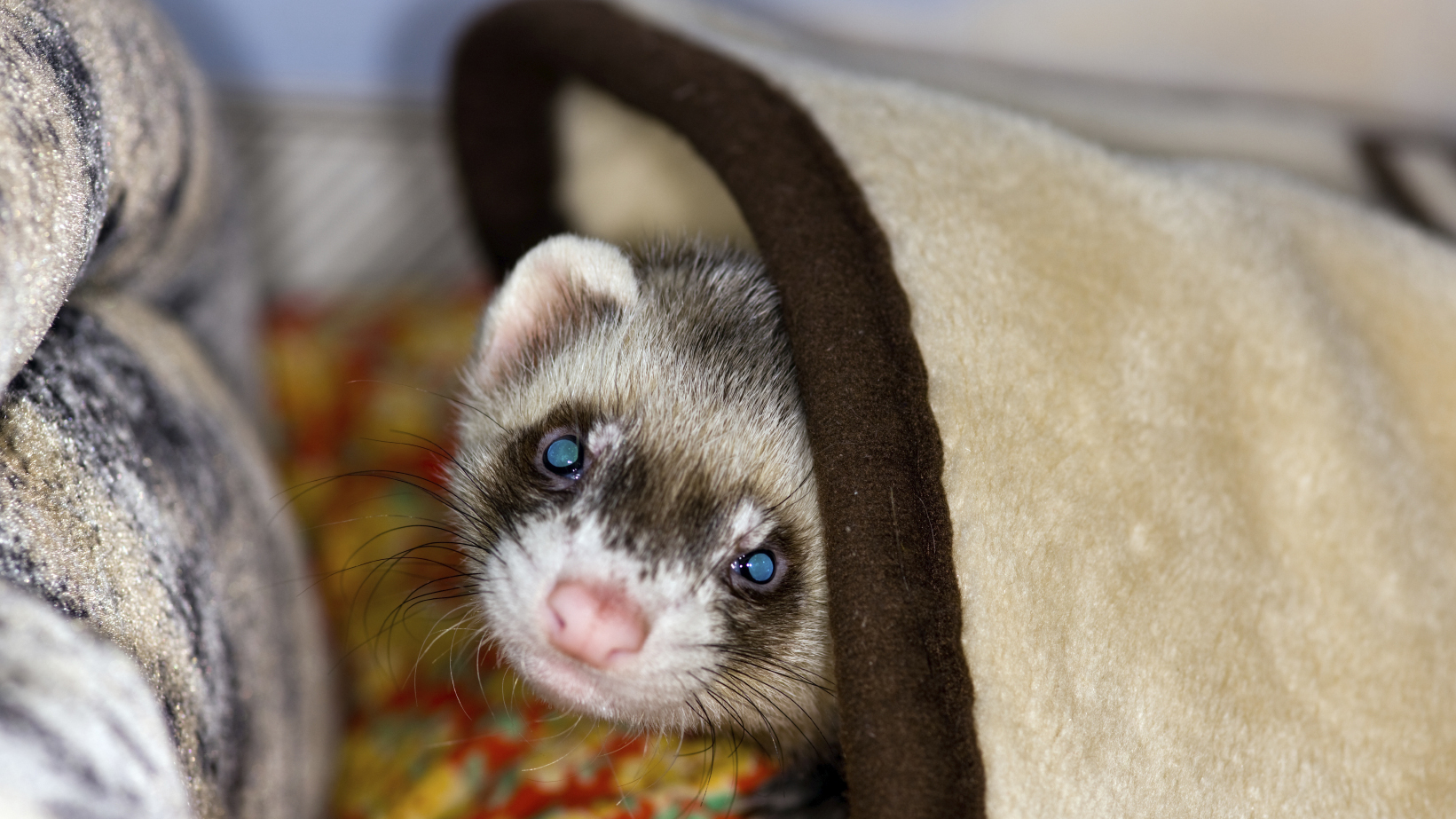
Feeding Your Ferret
The nutrition you provide your ferret is hugely important – food provides the building blocks for everything that happens in your ferret’s body.
More about feeding your ferret
All ferrets are obligate carnivores – this means they need animal protein to survive. They also require high amounts of fats, higher than other common pets such as cats and dogs. Many ferret owner choose to provide this nutrition via pelleted ferret food, which should contain a meat source such as chicken or lamb as the main ingredient (not fish). If you have a choice, smooth, small chunks are easier for your ferret to eat than more angular pellets and ideally a pelleted food will contain 32-38% animal protein – don’t be afraid to check the back of the bag and make sure you are getting what your ferret needs.
Another option for providing the protein your ferret needs is with kitten food. This has high protein, and is a suitable base diet for ferrets, although they will need extra fatty acid supplements as kitten food does not provide enough of these for ferrets. Cat food has less protein content than kitten food, so kitten food is much more suitable.
Dog food has far too many carbohydrates in and is just not suitable for the ferret digestive system.
You can top up your ferret’s protein, and provide a bit of fun, using supplementary cooked meat sources such as pieces of chicken, cat treats and cooked egg as treats. This is great for them, and offering a variety of food from a young age will make your ferret much more open to a range of foods – starting an older ferret on a new food can be difficult, if not impossible.
How much a ferret needs to eat depends on:
- Age
- Weight
- Activity level
- Reproductive status
- Health status
- Base diet
Usually free-feeding is best for ferrets, but you may find you need to restrict their daily intake if they are becoming overweight.
Baby ferrets, or kits, will nurse from their mother for approximately six weeks, but they can be offered small amounts of food soaked until soft with warm water or broth from three weeks old. Over a week, gradually decrease the amount of added liquid, until you are offering the kits only solid pellets alongside their mother’s milk. During this time, replace any uneaten damp food with fresh after a few hours – young kits may start to toilet in the damp food otherwise, which can harm toilet training and will also affect your gill’s food consumption as she won’t eat soiled food unless forced. As your gill’s milk dries up, your young kits should be ready to move onto a dry diet. As well as the base pellet diet, offer a variety of safe foods to kits to try, as ferrets who are not exposed to a range of food types when young are much more likely to outright reject those food items when older.
Ferrets are well designed to digest fats and protein, but struggle with carbohydrates. A lot of sugar has also been potentially implicated in the development of insulinomas in ferrets. This means sugar is off the menu.
This includes:
- Vegetables - especially hard vegetables such as carrot, which can also block their digestive tract, and avocado. which is poisonous to ferrets.
- Fruit - These are very high in sugar. Grapes/raisins are also toxic to ferrets.
- Dairy - As well as being high in sugar, ferrets lack the enzyme required to digest dairy products.
- Sugary treats - If you want to give treats use ferret or cat treats, or use fresh meat or cooked egg. Some meat-based dog treats may be suitable, but many are carbohydrate heavy and can upset ferret digestion.
- Chocolate - As well as being high sugar, chocolate is toxic to ferrets.
Other items that should also be avoided in ferrets are:
- Cooked bones - These can splinter and seriously damage your ferret's digestive tract.
- Dog and adult cat food - These do not contain enough protein for ferrets.
- Xylitol - This sugar-substitute is also toxic for ferrets, so don't assume something low-sugar is safe for ferrets.
Ferret Advice
Read more of our expert ferret advice to keep your ferret happy and healthy.
